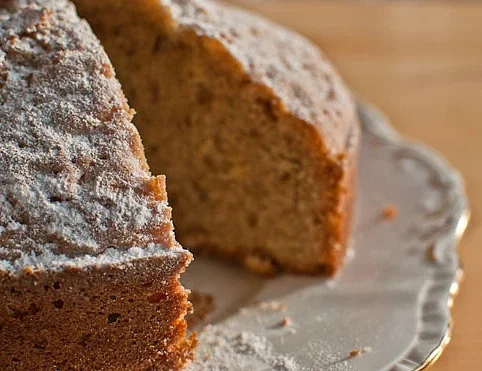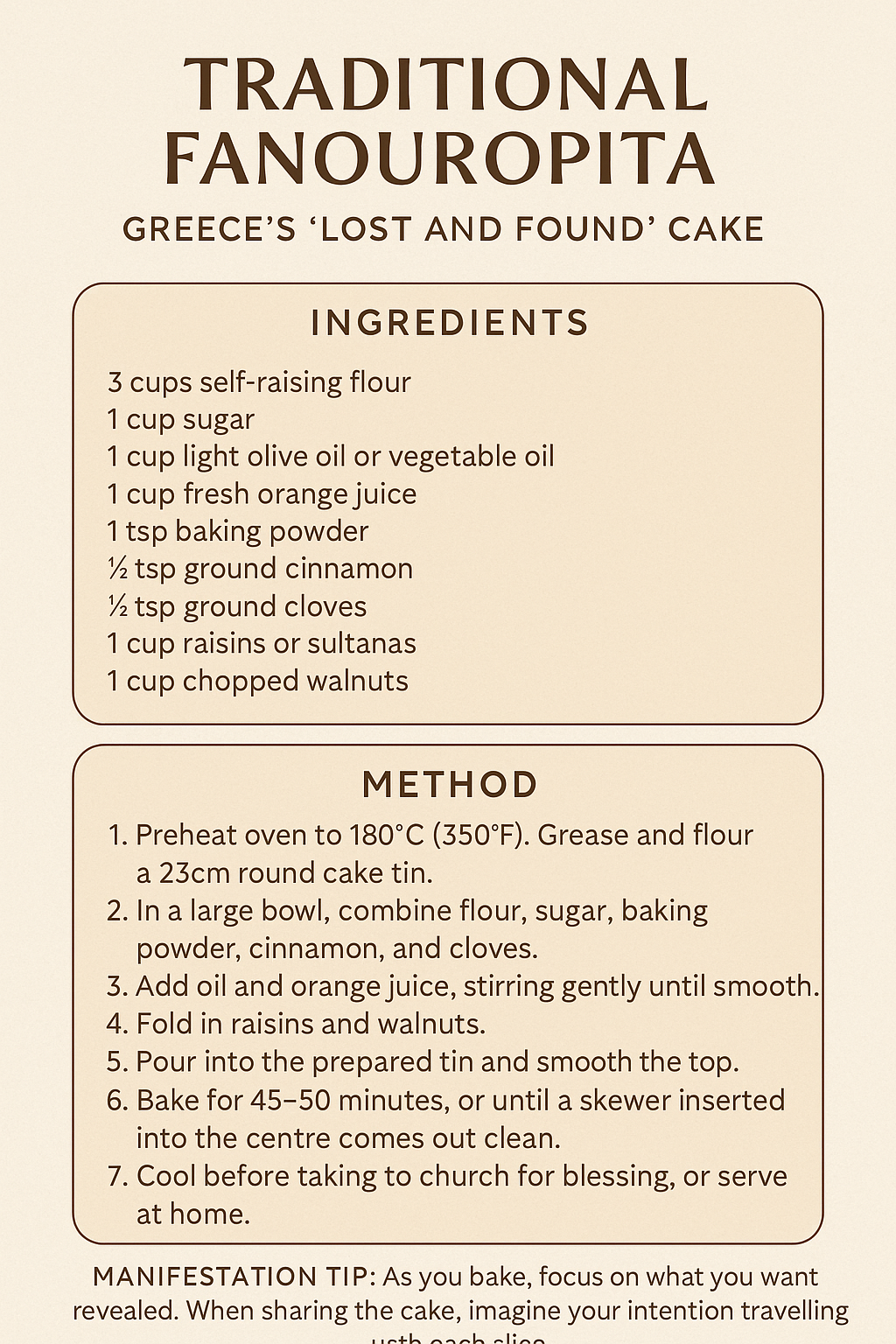Manifest Your Dreams (and Find Your Keys) with Fanouropita, Greece’s Lost and Found Cake
Some cakes are just dessert. Others feel like a wish in edible form. Fanouropita, baked every year on 27 August in honour of Saint Fanourios, belongs firmly in the second category. Known as the “lost and found cake,” it is believed to help reveal what is missing, from misplaced jewellery to life-changing clarity. It is an ancient Orthodox tradition, but for many Greeks today it sits comfortably alongside modern ideas of manifestation, mindfulness, and intention setting.
Who Is St Fanourios and Why Does He Reveal Things?
Saint Fanourios may not be one of the most famous saints in the Orthodox Church, but his role is unique. His name comes from the Greek word phanerono, meaning “to reveal” or “make known.” Over centuries, people began turning to him when something went missing, both in the literal and metaphorical sense. He is now the go-to saint for those seeking signs, solutions, and second chances.
The Ritual: Prayer, Manifestation, and Cake
Baking Fanouropita is not just about mixing flour and sugar. The process itself is a spiritual act. As you measure, stir, and fold the ingredients, you speak quietly to St Fanourios, sharing what you hope to find. For some, it is the return of a lost item. For others, it is courage, clarity, or the next step in a new chapter. Every movement in the kitchen becomes a form of prayer or meditation.
I first made this cake with my mother-in-law when I was living in Athens. Life was up in the air and things were tough. She works at the church and told me all about the tradition, explaining every step as we went. We baked it together in her kitchen and I put everything I had into that cake, every worry, every hope, every quiet prayer. Safe to say, life is pretty good now, ftou ftou, and I like to believe that little spiritual rituals like this play a hand in it.
Once baked, the cake is taken to church, often on the evening of 26 August during the Great Vespers service, and blessed by the priest. This seals the offering. Tradition says the cake should then be shared with at least nine people, spreading both the blessing and the story of St Fanourios.
The Ingredient Symbolism
Fanouropita is traditionally vegan, containing either seven or nine ingredients. The numbers carry spiritual meaning, with seven for the days of creation and nine for the choirs of angels. The ingredients themselves can be seen as symbolic:
Flour – The foundation of life, sustenance, and stability
Sugar – Sweetness in life and gratitude for blessings received
Olive Oil – Healing, peace, and divine presence
Orange Juice – Freshness, renewal, and joy
Baking Powder – The rise of hope and faith
Cinnamon – Warmth, love, and protection
Cloves – Spiritual connection and remembrance
Raisins or Sultanas – Abundance, provision, and the sweetness of shared moments
Walnuts – Strength, wisdom, and endurance
A Living Tradition in Modern Greece
Fanouropita is celebrated all over Greece, but nowhere more so than on Rhodes, where St Fanourios is the patron saint. There, the feast day becomes a community-wide event with processions, music, and tables laden with cakes. Even in big cities, the smell of cinnamon and orange in late August signals the season. The tradition continues to thrive among devout churchgoers and those drawn to its meditative, intention-focused ritual.
How Travellers Can Take Part
If you are in Greece in late August, you may be offered a piece of Fanouropita. Accept it with thanks and think of what you would like revealed in your own life. You can:
Attend a church service on 26 or 27 August to see the blessing of the cakes
Visit a bakery and ask if they are making Fanouropita for the feast day
Bake your own if you have a kitchen, following the prayer tradition as you prepare it
Traditional Fanouropita Recipe (Nine Ingredients)
Ingredients:
3 cups self-raising flour
1 cup sugar
1 cup light olive oil or vegetable oil
1 cup fresh orange juice
1 tsp baking powder
1 tsp ground cinnamon
½ tsp ground cloves
1 cup raisins or sultanas
1 cup chopped walnuts
Method:
Preheat oven to 180°C (350°F). Grease and flour a 23cm round cake tin.
In a large bowl, combine flour, sugar, baking powder, cinnamon, and cloves.
Add oil and orange juice, stirring gently until smooth.
Fold in raisins and walnuts.
Pour into the prepared tin and smooth the top.
Bake for 45–50 minutes, or until a skewer comes out clean.
Cool before taking to church for blessing or sharing at home.
Tip: As you bake, focus on what you want revealed. You can speak it aloud, hold it in your mind, or write it down and keep it near the mixing bowl. When sharing the cake, imagine your intention travelling with each slice.

